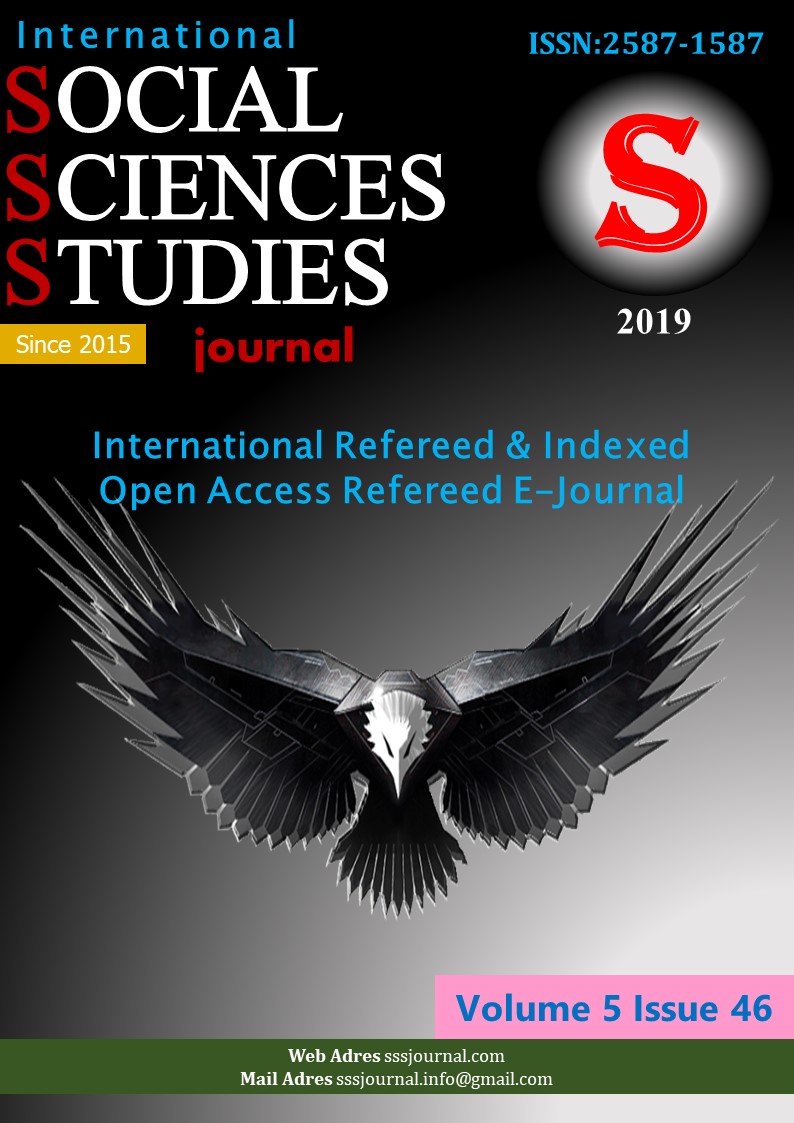Author :
Abstract
It can be said that tax evolved in the history of humanity, with the need of people to live together with social developments. Particularly due to the social developments, the increase in the collective needs and diversity necessitated the existence of tax. The political authority that determines the taxation process, uses the power it holds in the budgeting of the taxes. It is important if this power is used in accordance with the non-financial objectives of the tax as well as the original purposes. At this stage, tax performance values and tax effort values for a country are important indicators of the success of the taxation process. The aim of this study is to identify the basic components influencing the financial and economic performance in terms of tax in Turkey and to determine the status covering the 1975- 2014 period. In this period; the effects of savings, tax burden and bureaucracy on tax performance were determined.
Keywords
Abstract
Verginin insanlık tarihinde, insanların birlikte yaşama ihtiyacıyla birlikte ortaya çıktığı, toplumsal gelişmeler ile birlikte geliştiği söylenebilir. Özellikle toplumsal gelişmelerin de etkisiyle kolektif ihtiyaçlardaki artış ve çeşitlilik, verginin varlığını zorunlu kılmıştır. Vergilendirme sürecini belirleyen siyasal otorite elinde bulundurduğu gücü, tahsil ettiği vergilerin bütçe içerisinde harcanması aşamasında da kullanmaktadır. Bu yetkinin vergilerin asli amaçları yanında mali olmayan amaçlara da uygun olarak kullanıp kullanmadığı önem arz etmektedir. Bu aşamada bir ülke için vergi performansı değerleri ve vergi gayreti değerleri, vergileme sürecinin başarısının önemli birer göstergeleri olmaktadır. Türkiye açısından vergi performansını etkileyen temel mali ve ekonomik bileşenlerin tespitini hedefleyen çalışmada, 1975- 2014 dönemini kapsayan durum belirlenmeye çalışılmıştır. Söz konusu dönemde vergi performansı üzerinde; tasarrufların, vergi yükünün ve bürokrasinin etkisi tespit edilmiştir.
Keywords
- ARIF, I.& Rawat, A. S. (2008). “Corruption, Governance, and Tax Revenue: Evidence from EAGLE countries”, Journal of Transnational Management, : 1-16.
- BERKSOY, T. (1984). “Gelişmekte Olan Ülkerlerde Vergi Kapasitesi ve Vergi Gayreti”, Marmara Üniversitesi Yayın No: 411.
- DURSUN, G. D. (2008). “1990–2006 Yılları Arası Türkiye’nin Vergi Kapasitesinin Hesaplanmasına ait Bir Araştırma”, Maliye Finans Yazıları, 22 (79): 45-60.
- EDİZDOĞAN, N.; ÇETİNKAYA, Ö. & GÜMÜŞ, E. (2013). Kamu Maliyesi, Bursa.
- ELTONY, M. & ELTONY, N. (2002). “Measuring Tax Effort in Arab Countries”, Economic Research Forum, Working Paper 0229: 1-11.
- GRANGER, C.W.J. & NEWBOLD, P. (1974). “Spurious Regressions in Econometrics”, Journal of Econometrics, 2: 111-120.
- GUJARATI, D. N. (1999). Temel Ekonometri, (Çev.Ümit Şenesen, Gülay Günlük Şenesen), Literatür Yayıncılık, İstanbul.
- KARNIK, A. & SWATI R. (2015). “State Fiscal Capacity and Tax Effort: Evidence for Indian States”, South Asian Journal of Macroeconomics and Public Finance, 4(2) 141–177.
- LOTZ J. & MORSS E. (1967). "Measuring Tax effort in Developing Countries", IMF Staff Paper, Vol.14: 478-99.
- MANSOUR, M. (2014). "A Tax Revenue Dataset for Sub-Saharan Africa : 1980-2010", (Foundation pour les études et recherches sur le développement international) (FERDI) Working Paper No. I19.
- PEHLİVAN, O. (2014). Kamu Maliyesi, Celepler Matbaacılık. Trabzon.
- PIANCASTELLI, M. (2001). “Measuring the Tax Effort of Developed and Developing Countries: Cross Country Panel Data Analysis, 1985/95”, The Institute for Applied Economics Research (IPEA), Brasilia, Texto Para Discussao No. 818.
- RAKICI, C. & AYDOĞDU C. (2017). “2000 Yılı Sonrası Türkiye’de Vergi Performansının Değerlendirilmesi”, Sosyoekonomi, 2017, Vol. 25(33): 221-239.
- STOTSKY, J. G. & ASEGEDECH W. M. (1997). “Tax Effort in Sub-Saharan Africa” (September 1997). IMF Working Paper NO. 107: 1-57.





